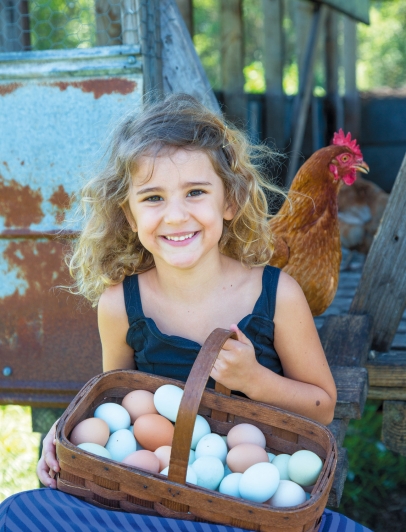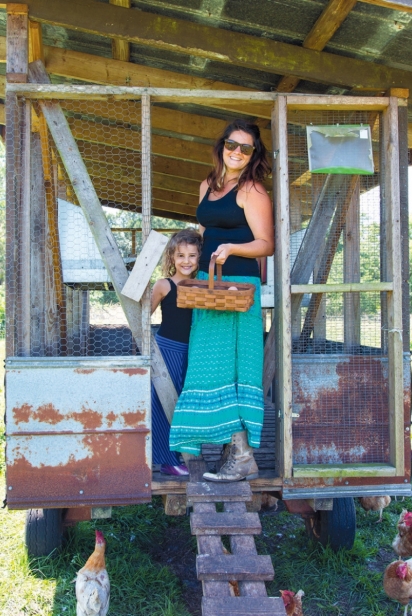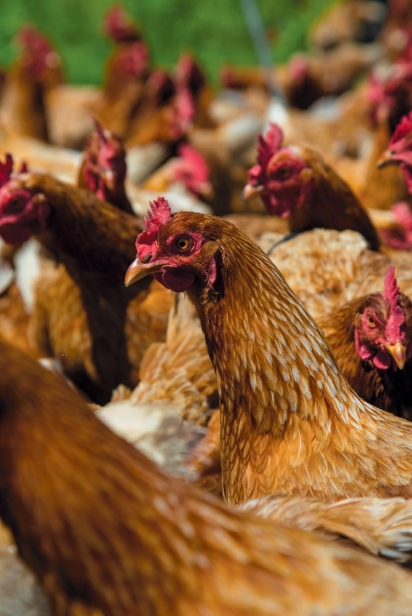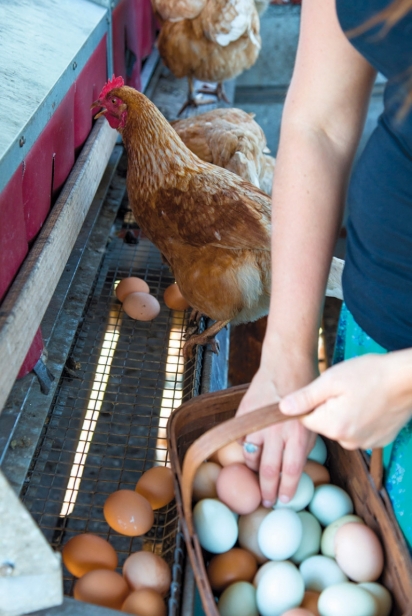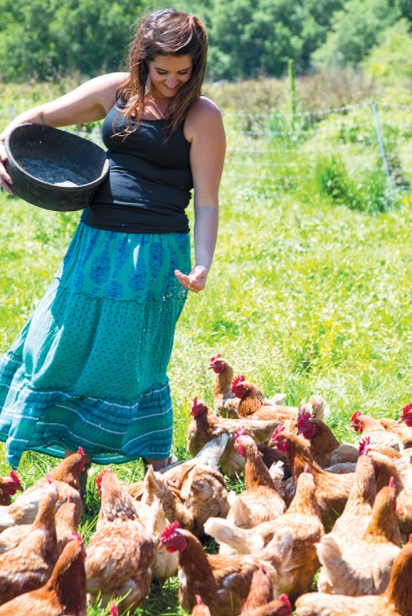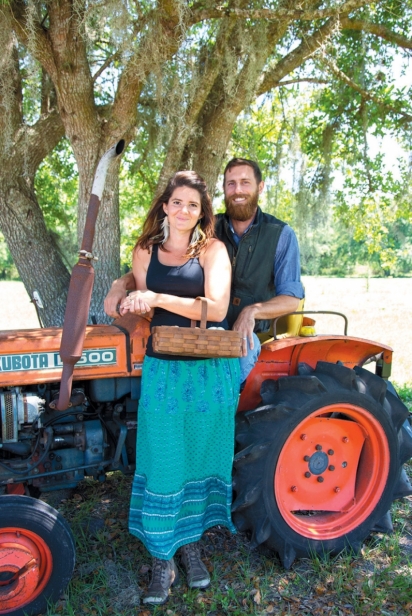New Egg in Town Grove Ladder Farm
For Grove Ladder Farm owners Tim and Chelsea Clarkson, the desire to become farmers arose out of their community’s need for ethically raised meat and eggs.
The addition of 200 Ameraucana chicks to their 1,200-strong Red Sexlink layer flock last fall—well, that was purely for fun. Little did they know that adding this breed to their 10-acre farm would have them managing feathered teenagers before their eldest human daughter turned 8.
“They are unruly,” says Tim Clarkson from inside Grove Ladder’s new Yolkswagon market trailer. “They don’t like to lay in the nesting box, so it’s sort of like an Easter egg hunt every time.”
Collecting eggs laid about the property is not ideal for a farmer recovering from an accident that currently has him hobbling on one leg. Thankfully, daughters Guinevere and Rosa Maeve and Celeste are on board to help with the daily hunt. What the newbie Ameraucanas lack in loyalty to the nesting box they make up for in some other unique qualities.
“The birds themselves are beautiful,” he says. The Grove Ladder Ameraucanas boast feathers of slate blue, black with almost iridescent feathers, and cream with gold plumage, meaning these ladies stand out in the crowd. But their most notable and desired feature happens to be the color of their eggs, which they lay in various tones of light blue.
It’s important to note, however, that the color of the shell does not permeate the egg. All egg shells start out white. It’s only during the 24- to 26-hour journey through a chicken’s internal factory that the egg obtains its color—or lack thereof. Once cracked, it would be almost impossible to tell which egg came from a blue shell. They still make a pretty addition to the egg carton and would be a fabulous addition to Easter brunch hard-boiled or soft and left half in the shell.
But whether that egg is blue, brown, white, or beyond (there are also breeds that lay green eggs), it’s what inside the shell that counts. And eggs laid by pasture-raised hens—like the feathered ladies of Grove Ladder—are superior to pretty much any egg you’ll get from a grocery store. And if we are being perfectly honest, the taste of any store-bought egg (up to 90 days old) pales in comparison to that of a fresh egg like the ones sold by the Clarksons—no older than four days from “point of lay.”
Grove Ladder chickens are encouraged not only to graze at their leisure but are regularly treated to high-quality non-GMO grains, purposefully sourced, flame-roasted for optimal digestion and adapted seasonally to meet dietary needs. For example, during sweltering summer months, chickens need more protein for the best egg production.
“Chickens are omnivores,” says Tim. “They would lay eggs on pasture alone, but they need a high-protein, high-fat diet to stay healthy and produce a nutritionally dense egg.”
Look for the “community-funded” Yolkswagon stocked with blue and brown eggs at the Phillippi Farmhouse Market, the Sarasota Downtown Market and the Market at Lakewood Ranch. You can also pre-order online and choose your pickup location. Because there is no diff erence in cost, customers can get a mix of blue and brown eggs at their request. Pre-orders are appreciated and recommended but not required. The Clarksons also encourage return customers to bring back their cartons for reuse.


